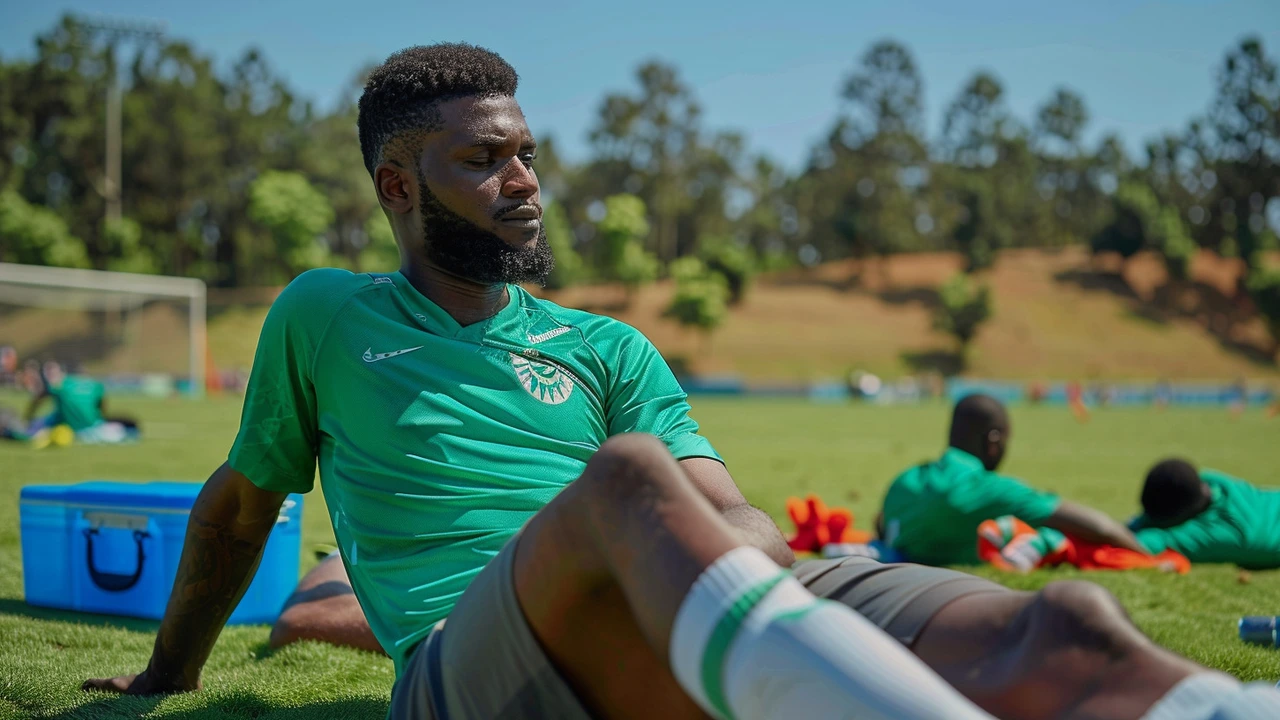Labour Strike in Nigeria Disrupts Super Eagles' 2026 World Cup Qualifier Preparation
A massive labour strike led by the Nigeria Labour Congress (NLC) and the Trade Union Congress (TUC) has thrown a wrench into the plans of Nigeria's Super Eagles as they gear up for crucial World Cup qualifying matches. This industrial action, which seeks to address workers' grievances, has far-reaching consequences that have cascaded into the realm of sports, particularly affecting the national football team.
Key Players Stranded Due to Flight Cancellations
Among the immediate ramifications of the strike is the inability of eight pivotal players to report to camp in Uyo. The list of stranded athletes reads like a who’s who of Nigerian football talent: Maduka Okoye, Semi Ajayi, Bright Osayi-Samuel, Calvin Bassey, Frank Onyeka, Alex Iwobi, Ademola Lookman, and Paul Onuachu. Their absence poses a significant challenge for the Super Eagles' head coach and management team as they prepare for high-stakes matches against South Africa and Benin Republic.
The strike, which commenced on Monday, has led to the shutdown of domestic flights, effectively grounding not only the players but also affecting travel plans for numerous civilians across Nigeria. Airports, already strained by the strike, find themselves in a state of near-paralysis. This unprecedented situation has left many wondering how the team will be able to field a competitive side under such challenging circumstances.
Impact on Critical Infrastructure
While the plight of the Super Eagles is headline-worthy, it's important to note that the strike's impact extends well beyond the realm of sports. The national grid has been compromised, leading to widespread power shortages. Nigerian ports, crucial for both national and international trade, have seen operations come to a grinding halt. Educational institutions and hospitals are also experiencing unprecedented disruptions, complicating everyday life for millions of Nigerians.
With such widespread repercussions, the nation finds itself in a state of heightened tension. The strike is not merely inconveniencing the football team; it is emblematic of broader systemic issues that affect a variety of sectors. In the world of sports, however, the timing could not be worse. The World Cup qualifiers are a pivotal series of matches that serve as gateways to the prestigious international tournament.
Preparation in Disarray
In the midst of this turmoil, 15 players, including luminaries like Wilfred Ndidi and Kelechi Iheanacho, have managed to arrive in Uyo. However, their presence is but a partial consolation. Given the absence of nearly a third of the team, officials have opted to forgo training on Monday evening, opting instead to allow the players some rest and recovery time. This decision underscores the challenges facing the team: physical preparation is only one aspect of readiness; mental and emotional composure are equally crucial.
The Super Eagles, known for their resilience and tenacity, face one of their most strenuous tests yet. The absence of key players not only disrupts tactical plans but also affects team morale. Moreover, this development puts a strain on the camaraderie and synchronization that are pivotal for a cohesive performance on the field.
Broader Implications for Nigerian Football
This setback could also serve as a wake-up call for the Nigerian football federation and related authorities. Contingency plans need to be more robust, especially in a country where labour strikes and other sudden disruptions are not uncommon. Player welfare, logistical arrangements, and emergency protocols should always be top priorities.
Indeed, the Super Eagles' plight should spur action beyond quick fixes. There needs to be a systemic overhaul aimed at ensuring that such disruptions are minimized in the future. The federation’s ability to adapt quickly and effectively in crises will be crucial for the team's ongoing success on the international stage.
Community and Fan Reactions
Predictably, fans and the larger community are on edge. Social media platforms are buzzing with both support for the stranded players and frustration at the situation. Many see this as yet another example of how larger societal issues permeate all aspects of life, including sports. Fans remain hopeful, however, that the team will rise to the occasion and perform admirably despite the setbacks.
Football in Nigeria is more than just a sport; it is a unifying force, a source of national pride. The passion and fervor with which Nigerians follow their teams cannot be overstated. Thus, the current crisis is more than just a logistical hiccup; it is a matter of national concern.
The Way Forward
As the situation unfolds, all eyes are on the Nigerian government, labour unions, and football authorities. There is an urgent need for dialogue and resolution. The World Cup qualifiers are a key moment for the Super Eagles, and the team needs every bit of support it can get, from logistical arrangements to moral encouragement.
In summary, the ongoing labour strike in Nigeria has significant implications for the Super Eagles' preparations for the 2026 World Cup qualifiers. With eight key players stranded due to the shutdown of domestic flights, the team finds itself in a precarious position. This situation highlights broader systemic issues affecting not just sports but various critical sectors in the country. The road ahead is fraught with challenges, but with resilience and collective effort, there is hope that the Super Eagles will overcome these hurdles.














